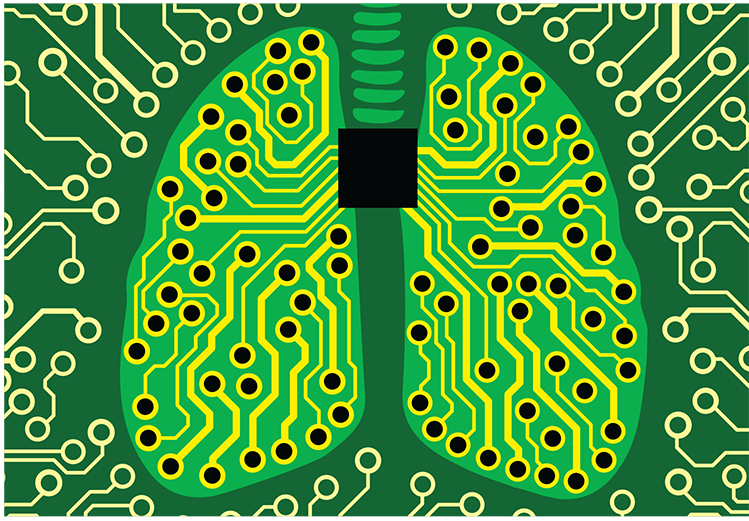TTUHSC Pharmacy Professor Develops Organ on a Chip
Fakhrul Ahsan, PhD, professor in the Department of Pharmaceutical  Sciences at Amarillo, has developed a new, revolutionary concept for researching potential
cures for pulmonary arterial hypertension (PAH). The concept is called “organ on a
chip” for its ability to recapture organ level functions on small chip-like device.
Sciences at Amarillo, has developed a new, revolutionary concept for researching potential
cures for pulmonary arterial hypertension (PAH). The concept is called “organ on a
chip” for its ability to recapture organ level functions on small chip-like device.
What is it?
PAH on a chip is a multilayer device, which provides an environment to grow cells
that undergo changes when an individual develops PAH. This device can capture the
pathophysiology of PAH, which helps researchers understand this rare disease that
narrows the pulmonary arteries and arterioles carrying the blood form the heart to
the lungs.
What is the public health relevance?
PAH affects between 10 to 52 people per million and causes 1.7 deaths per million.
People of every age and race are subject to the disease. Women are four times more
likely than men to be affected, but more men succumb to the disease than women. This
device will allow researchers to better understand the processes implicated in the
disease, expedite drug discovery and help develop personalized therapy based on an
individual’s sex and age.
Funding?
In 2017, the Cardiovascular Medical Research and Education Fund awarded Ahsan an estimated
$163,000 over three years for device development. This year, Ahsan received a four-year
$2.4 million grant from the National Institutes of Health for further validation of
the device.
Future plans?
Future plans involve modification of this device for studying other cardiopulmonary
diseases.
My dream is to establish a start-up company for fabrication and validation of such
devices and supply them to the medical research community.
Fakhrul Ahsan, PhD
Professor Pharmaceutical Sciences

